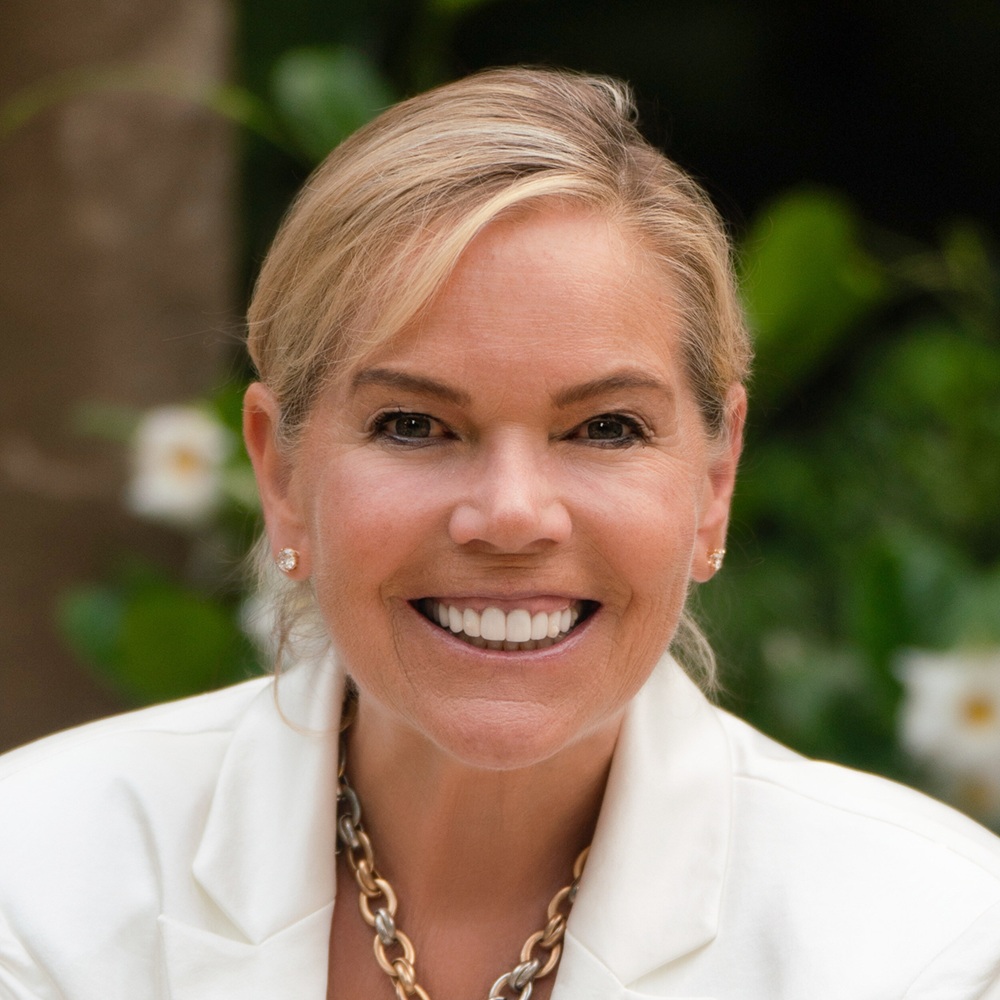I Didn’t Think I Needed an Estate Plan Until This Happened
This financial professional was motivated to get her estate plan in order after the untimely death of a loved one. She shares six simple steps to do that for yourself.


Profit and prosper with the best of Kiplinger's advice on investing, taxes, retirement, personal finance and much more. Delivered daily. Enter your email in the box and click Sign Me Up.
You are now subscribed
Your newsletter sign-up was successful
Want to add more newsletters?
Let’s face it: You have to be motivated to create an estate plan.
Like many, I viewed estate planning as a necessary but daunting task that I could easily put off until later in life. Then my older brother died. What followed his passing transformed my understanding of what it means to take care of your loved ones.
The unexpected loss of my brother to a heart attack at age 65 was deeply traumatic for our family, especially his wife and children. He couldn’t prevent his untimely passing, but what he did do was protect everyone he loved.
From just $107.88 $24.99 for Kiplinger Personal Finance
Become a smarter, better informed investor. Subscribe from just $107.88 $24.99, plus get up to 4 Special Issues

Sign up for Kiplinger’s Free Newsletters
Profit and prosper with the best of expert advice on investing, taxes, retirement, personal finance and more - straight to your e-mail.
Profit and prosper with the best of expert advice - straight to your e-mail.
We quickly learned he had thoughtfully and meticulously prepared for the unforeseen, sparing his wife from the additional burden of navigating their business and finances during such a devastating time. He left her detailed instructions in a family trust document that included everything from their investments to managing and selling their rental properties, including contacts for property managers. He provided passwords to accounts, up-to-date financial snapshots and clear directives on how he wanted his assets distributed, along with explanations for his choices. (I told you — meticulous!)
While two-thirds of Americans still lack a simple will, personal experiences can spur action. One out of six Americans without a will say they are motivated to get one after the death of a loved one, according to a 2024 study by Caring.com. I have deep respect for my brother’s thoughtfulness, which is why I’ve started to develop my own estate plan and consulted with estate planning experts from my Wealthramp network of fee-only financial advisers.
I’m learning firsthand that the simplest lives are layered with complexities: children, pets, savings, retirement accounts, real estate, debts, personal belongings. It starts by taking a full inventory of what you own and providing access to the information, such as your medical wishes. What if you’re incapacitated and unable to speak for yourself?
Estate planning is more than just a financial necessity; it is the gift you can give your loved ones that will help them when they need your help the most. It ensures that you, not the state, decide how your affairs are handled and who receives your assets.
Six simple, essential steps to get your 'what if' plan together
You now know why I’m motivated to get my plan in place and might wonder how to begin organizing your own affairs. Here’s my list of six simple steps that I recommend for anyone, regardless of age or assets:
1. Inventory your assets and liabilities.
Catalog everything you own that holds either monetary or sentimental value. Simultaneously, make a list of all your liabilities, including mortgage balances, car loans and any other outstanding debts. Consider working with a fee-only financial adviser who can help you get a full and accurate snapshot of your investments and create a solid financial plan to guide your family.
2. Select your beneficiaries.
Decide who will inherit your assets. This could include family members, friends or charitable organizations. And keep them updated, as these designations can even override your will.
3. Establish a health care directive.
This vital legal document outlines your wishes for medical treatment if you become unable to communicate. Designate a trusted individual to make health care decisions on your behalf and discuss this responsibility with them thoroughly.
4. Decide whether to draft a will or a trust.
A simple will might suffice for your needs, but consider creating a living trust, which can bypass the often lengthy and costly probate process. This step is also where you appoint guardians for any dependents, including children or pets. Plus, what it now costs to create a legal trust is now almost the same as drafting a will.
5. Plan for business continuity.
If you own a business, implement a succession plan to ensure smooth operations and continuity in your absence.
6. Evaluate life insurance needs.
If your family relies on your income, calculate how much term life insurance is necessary to replace your earnings should something happen to you.
Each of these decisions not only significantly impacts your family but also evokes strong emotions, highlighting the need for clear communication.
Communicating your intentions
While it’s great to leave detailed instructions like my brother did, it can be even more helpful to deliver them personally.
That means having a real conversation that sets clear expectations and prepares your family, reducing the potential for misunderstandings or conflicts by explaining the rationale behind how and why you’ve chosen to allocate your assets.
For example, consider a scenario where you own a business that only one of your children has shown interest in and contributed to, while the others have not. Therefore, in this case, equal division may not equate to fairness. Your children should know why.
Typically, it’s advisable for parents to initiate this sensitive conversation, as it concerns decisions that may not be relevant to others until the parents choose to disclose them. You’ll want to decide how much information about your estate plans you wish to share. For some, transparency can prevent disputes, especially between siblings.
What, then, are the most valuable assets that cause the most contention among families?
Let’s discuss Mom and Dad’s house
Over the next 20 years, Gen X and Millennials are expected to inherit about $76 trillion in assets, including real estate. For many, the family home represents a significant portion of this wealth.
Most questions about passing on a house to the next generation come from the adult kids who will inherit their family home. Here are the two most common questions they ask.
First, should I be added to the deed now before my parents or loved ones pass away?
Estate planning experts generally say the answer is a hard no. Adding you to the deed can complicate decision-making, as both child and parent now share ownership of the home. It also means that when you sell the house, you’ll lose a huge capital gains tax break. The IRS allows heirs a step-up in cost basis compared to inheriting the property directly through a will or estate plan.
Second, what happens when I (or we) inherit the property?
Assuming there’s a legal will or trust outlining the heirs and their entitlements, it’s important to understand the implications if you’re poised to inherit your parents’ house. This could be one of the largest financial gifts of your life.
Hilary Daniel, CFP®, a financial adviser at Modera Wealth Management and fiduciary on Wealthramp, emphasizes the importance of finding out if there’s an outstanding mortgage (or reverse mortgage) on the property. “If so, you and any other parties that inherit will need to continue to pay the lender to avoid foreclosure,” she says.
Daniel also advises being aware that if a home is inherited by multiple parties, any heir has the legal right to force a sale of the property. “You might need to buy out other inheritors if you wish to retain the home.”
But what if you want to sell?
The step-up provision means your cost basis will be the market value at the time of the original owner’s death, potentially eliminating capital gains tax if sold immediately. If you decide to live in the property and sell it later, be aware of the home sale exclusion, which allows up to $250,000 (or $500,000 for joint filers) to be excluded from tax if the home was your primary residence for at least two out of the past five years.
And if you want to keep it?
Daniel points out, “Inheriting a home also means inheriting its upkeep costs.” This may include homeowners association dues, insurance and regular maintenance. So, assess whether these expenses fit your budget.
Older brothers are often known for their tough love, but I’m grateful that mine left me with invaluable wisdom by setting an example of caring and foresight. I hope the mere consideration of life’s unpredictability inspires you to organize your estate, rather than waiting for a harsh reality to force your hand.
Related Content
- Retirement Tips for 2024 From Five Retirement Experts
- Five Things I Wish I’d Known Before I Retired
- Digital Estate Planning Guide: Get Your Digital Assets in Order
- Estate Plan Check-Ups: Don’t Just Set It and Forget It
- Estate Planning for Your Aging Parents: A Delicate Balance
Profit and prosper with the best of Kiplinger's advice on investing, taxes, retirement, personal finance and much more. Delivered daily. Enter your email in the box and click Sign Me Up.

With more than 25 years in investor advocacy, Pam Krueger is the founder and CEO of Wealthramp, an SEC-registered adviser matching platform that connects consumers with rigorously vetted and qualified fee-only financial advisers. She is also the creator and co-host of the award-winning MoneyTrack investor-education TV series, seen nationally on PBS, and Friends Talk Money podcast.
-
 Big Nvidia Numbers Take Down the Nasdaq: Stock Market Today
Big Nvidia Numbers Take Down the Nasdaq: Stock Market TodayMarkets are struggling to make sense of what the AI revolution means across sectors and industries, and up and down the market-cap scale.
-
 How Medicare Advantage Costs Taxpayers — and Retirees
How Medicare Advantage Costs Taxpayers — and RetireesWith private insurers set to receive $1.2 trillion in excess payments by 2036, retirees may soon face a reckoning over costs and coverage.
-
 3 Smart Ways to Spend Your Retirement Tax Refund
3 Smart Ways to Spend Your Retirement Tax RefundRetirement Taxes With the new "senior bonus" hitting bank accounts this tax season, your retirement refund may be higher than usual. Here's how to reinvest those funds for a financially efficient 2026.
-
 Buy and Hold … or Buy and Hope? It's Time for a Better Retirement Planning Strategy
Buy and Hold … or Buy and Hope? It's Time for a Better Retirement Planning StrategyOnce you're retired, your focus should shift from maximum growth to strategic preservation and purposeful planning to help safeguard your wealth.
-
 Your Legacy Is More Than Your Money: How to Plan for Values, Not Just Valuables
Your Legacy Is More Than Your Money: How to Plan for Values, Not Just ValuablesLegacy planning integrates your values and stories with legal and tax strategies to ensure your influence benefits loved ones and good causes after you're gone.
-
 Will Real Estate and Private Equity Start to Shine Again in 2026?
Will Real Estate and Private Equity Start to Shine Again in 2026?Real estate, private equity and general partner stakes could benefit from future interest rate cuts. What are the risks and rewards of investing in each?
-
 Your Retirement Age Is Just a Number: Today's Retirement Goal Is 'Work Optional'
Your Retirement Age Is Just a Number: Today's Retirement Goal Is 'Work Optional'Becoming "work optional" is about control — of your time, your choices and your future. This seven-step guide from a financial planner can help you get there.
-
 Have You Fallen Into the High-Earning Trap? This Is How to Escape
Have You Fallen Into the High-Earning Trap? This Is How to EscapeHigh income is a gift, but it can pull you into higher spending, undisciplined investing and overreliance on future earnings. These actionable steps will help you escape the trap.
-
 I'm a Financial Adviser: These 3 Questions Can Help You Navigate a Noisy Year With Financial Clarity
I'm a Financial Adviser: These 3 Questions Can Help You Navigate a Noisy Year With Financial ClarityThe key is to resist focusing only on the markets. Instead, when making financial decisions, think about your values and what matters the most to you.
-
 It's Time to Bust These 3 Long-Term Care Myths (and Face Some Uncomfortable Truths)
It's Time to Bust These 3 Long-Term Care Myths (and Face Some Uncomfortable Truths)None of us wants to think we'll need long-term care when we get older, but the odds are roughly even that we will. Which is all the more reason to understand the realities of LTC and how to pay for it.
-
 Fix Your Mix: How to Derisk Your Portfolio Before Retirement
Fix Your Mix: How to Derisk Your Portfolio Before RetirementIn the run-up to retirement, your asset allocation needs to match your risk tolerance without eliminating potential for growth. Here's how to find the right mix.